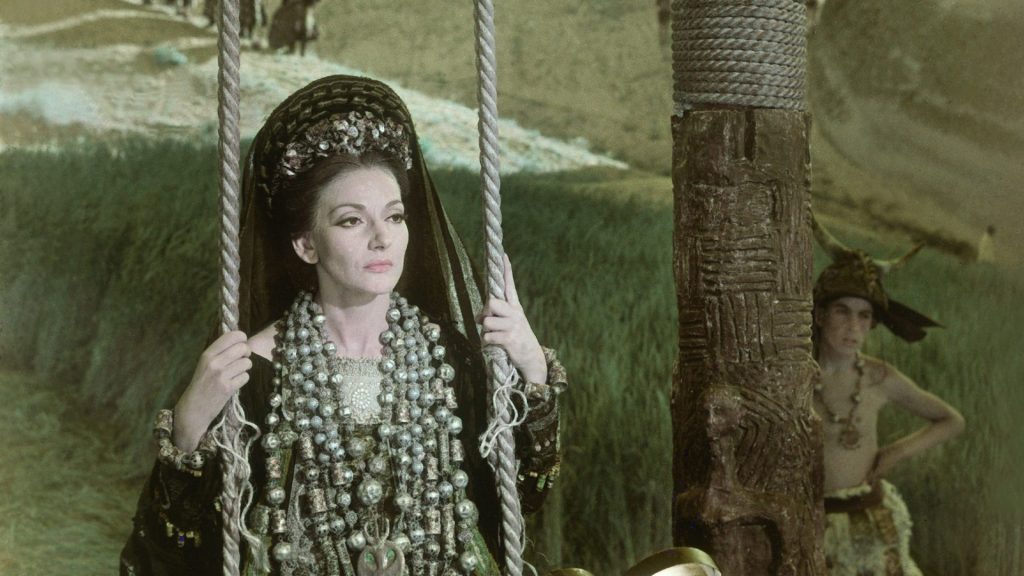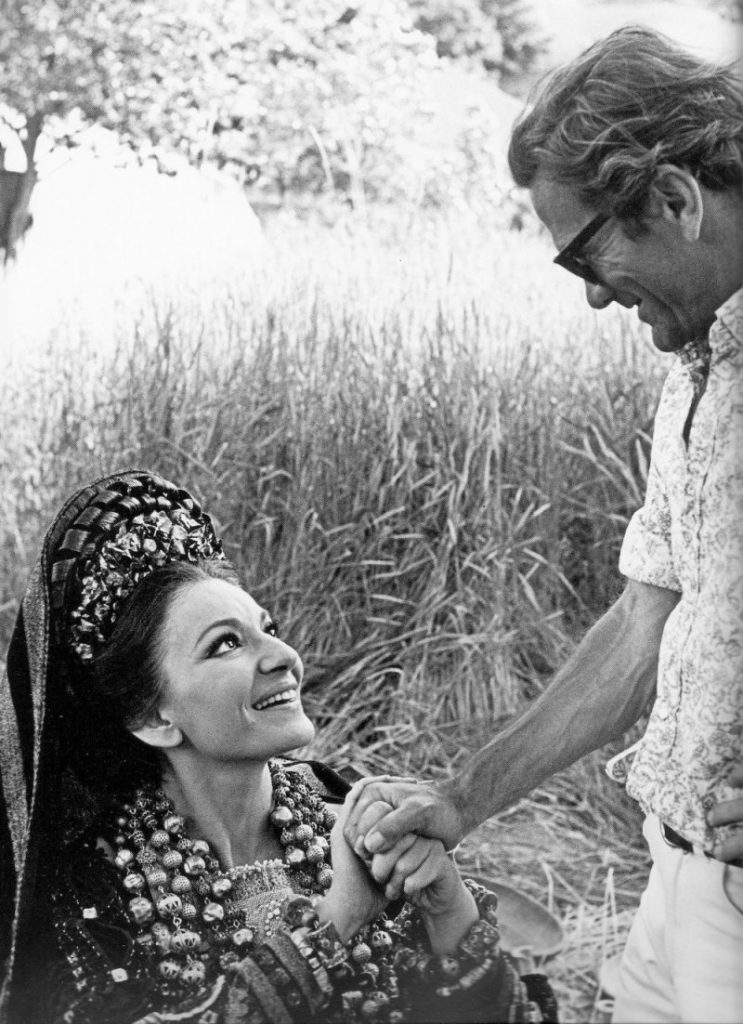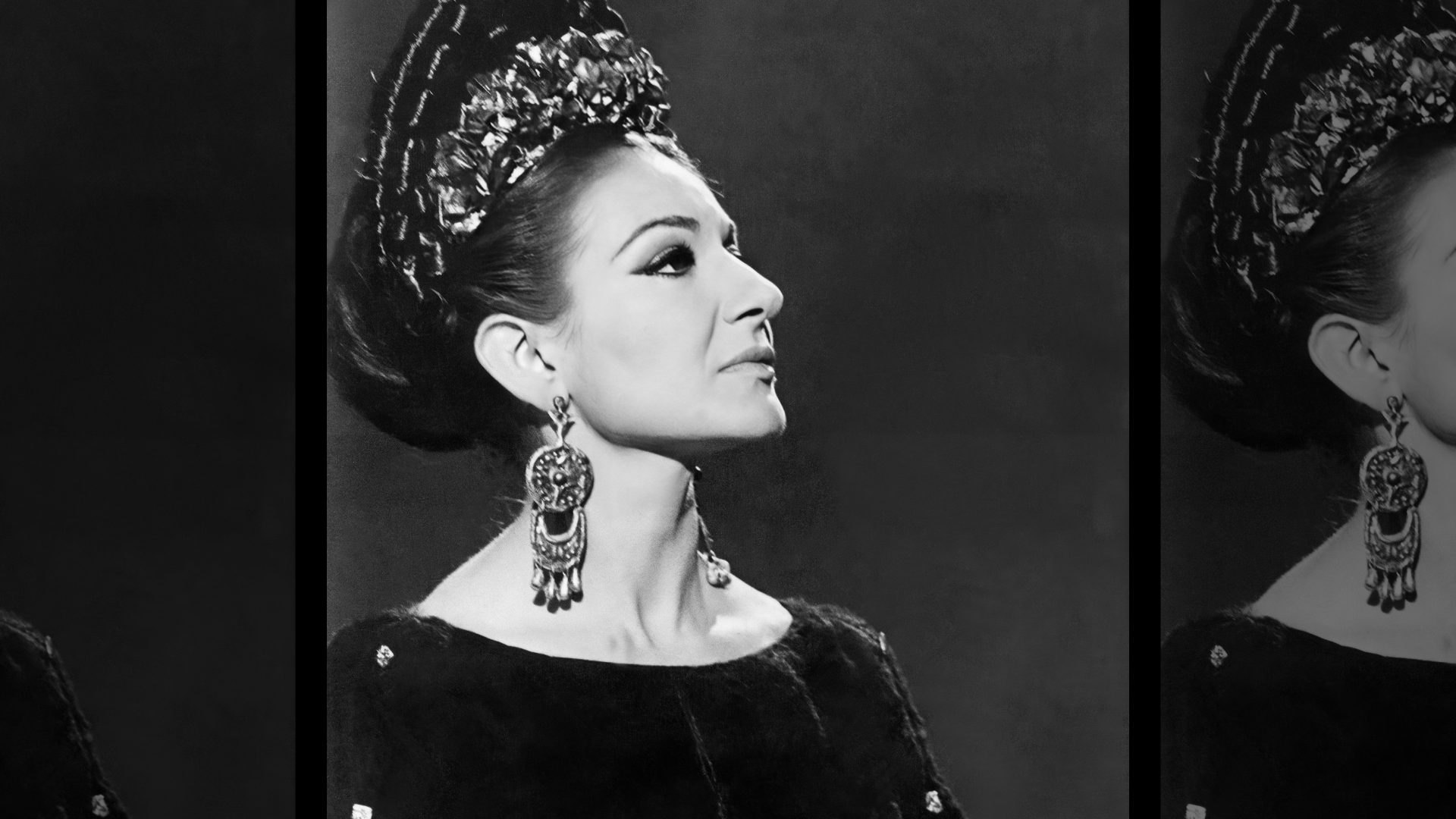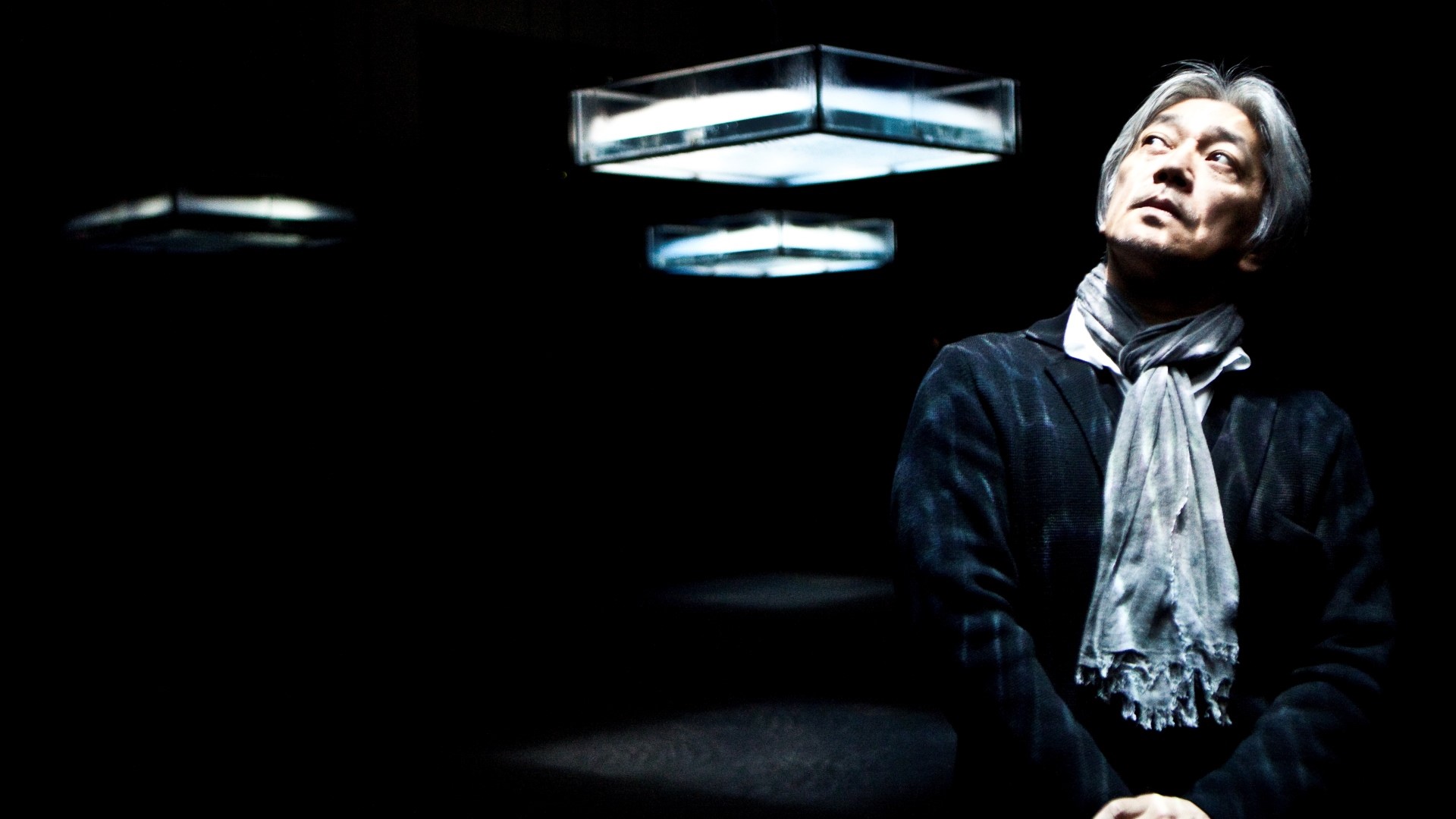Timeless, archaic, mythical and mysterious.” That was how one great and doomed artist, Pier Paolo Pasolini, described another, Maria Callas.
In 1969 they made a stunning, unconventional film together that would be the soprano’s first and last. Pasolini made only four more. Within eight years, both would be dead before they reached the age of 54 and their mad, magical work together would be all but forgotten.
Callas modernised opera. Until she came along, it had been provided by large singers in powdered wigs and Viking helmets to an audience of bow ties and family jewellery. Suddenly, here was a gifted singer who approached her operatic roles from an actorly point of view, finding nuance, rawness, and emotion beyond recitation.
Callas’s performances were fierce, proud, and entrancing, permanently changing expectations of what an opera singer should be. She was also La Divina, the queen of divas, whose offstage lifestyle was as attention-grabbing as her onstage personalities. The Callas love affairs, tantrums, and tragedies were all played out in public. She swept through fashion shows, society parties, and movie premieres with paparazzi chasing in her wake.
She was rumoured to have hit a director over the head with a brandy bottle. In 1958 she both walked out of the Rome Opera Company and was fired by the New York Met. By 1960 she was having an affair with the international shipping magnate and multimillionaire Aristotle Onassis. She was also the greatest soprano of the 20th century.
This year marks the centenary of Maria Callas’s birth and, in celebration, the Greek National Opera has programmed a series of events that will run throughout the year. Alongside an opera gala, exhibitions and recitals is a new production of Cherubini’s 18th-century opera, Medea.
Based on Euripides’ 431BC Greek tragedy, Maria Callas debuted in the title role in Florence in 1953 to rave reviews, and would become synonymous with the character of Medea throughout her life. A classically beautiful Greek divinity living a life riven with drama, more than Bizet’s Carmen, more than Bellini’s Norma, Callas was Medea. As with Euripides’ anti-heroine, Callas suffered at the hands of others, sought revenge, and was larger than life itself.
By 1965, though, Callas’s singing voice had deserted her. Weight loss had contributed to a lack of strength in her diaphragm, and she had suffered from dermatomyositis since the late 1950s, a degenerative neuromuscular disorder that affected her larynx. Her voice now ragged and shot, her final performance was in Tosca at the Covent Garden Opera House in 1965. It was now time to consider other options.
Despite her waning voice, Callas was still one of the most famous women in the world. In 1967, Onassis suggested film could be the next step. He arranged a meeting with the producer Franco Rossellini. Rossellini enthused about a developing project he was working on with the renegade director and polymath Pasolini – a film version of Medea. He told Callas that Pasolini would love to make her his leading lady, and how Pasolini had described her as “…timeless, archaic, mythical and mysterious”.
By way of an introduction to Pasolini’s work, Rossellini took Callas to a screening of Pasolini’s latest film, Teorema. Callas was unimpressed, telling a friend that the film was blasphemous and that Pasolini was mad. Rossellini persisted, promising Callas that this was the role for her.

According to Nadia Stancioff, author of the 1987 biography Maria: Callas Remembered, Callas changed her mind after consulting a Paris-based astrologer who assured her that the project would work out just fine. This story sat well with Pasolini. Here was his proposed Medea – a sorceress, no less – consulting another mystic in real time. Of Callas, he said: “Here is a woman, in one sense the most modern of women. But there lives in her an ancient woman – strange, mysterious, magical, with terrible inner conflicts.”
Callas met with Pasolini. They hit it off, and the deal was done. There was one more thing: this was a non-singing part. This was fine by Callas.
Callas and Pasolini made the perfect team, a creative force that was mired in controversy and melodrama. Born in New York to Greek immigrant parents, Maria Callas was famous by the time she was 25, her status as a performer fuelled by the passion she imbued in her roles.
In the radio documentary, Maria Callas: Voice of Imperfection, Tim Page, a professor and music critic at the University of Southern California, explains her pulling power. “There was always a keen dramatic intelligence and a real sense of harrowing intensity to her singing, which I think made her extremely special,” he says. “I mean, when you listen to Callas, even after her voice had started to go, it still tends to be an unforgettable musical experience.”
Bologna-born Pasolini was one year older than Callas, and made his first film, Accattone, in 1961 following a flurry of poetry and prose that included the novel Ragazzi di vita that led to the first of the many obscenity charges and censorship attempts that plagued his career. A firebrand Marxist, Pasolini used his work to rail against contemporary consumerism.
Capitalism, to Pasolini, had hammered the ordinary people, and the Italy he loved – culturally diverse, agrarian, honest – had been homogenised into a middle-class monolith. His Medea project would represent his anger and resentment at the loss of the world he treasured and at the emergent bourgeois class.
Furthermore, Euripides’ original Medea tells the story of a woman spurned. Medea, the divine granddaughter of the sun god Helios, punishes her husband, Jason (of Argonauts fame), for leaving her to marry Corinthian princess Gauce by killing the sons they had together, along with his new wife. Pasolini took the theme and ran with it, helped greatly by the fact that, by the time filming commenced in 1969, Onassis had dumped Maria Callas and married Jacqueline Kennedy. The touchpaper had been lit.
In Barth David Schwartz’s biography, Pasolini Requiem, he describes how Pasolini treated Callas with kid gloves during their first meeting in March 1969, noting “he spoke softly, and they struck it off immediately”. Callas purred, and shooting started as summer began, with Callas telling the assembled press that her role was that “…of a semi-goddess who puts all her beliefs in a man. At the same time, she is a woman, only bigger – bigger sacrifices, bigger hurts. You can’t put these things into words.”
Portrayed by Callas, Pasolini’s Medea is otherworldly and carved from time itself. Jason is a modern pragmatist, oblivious to the values of the past. This is Pasolini’s old, lamented world versus the repugnant new. Propelled by her breakup with Onassis, Callas is magnificent in the role, her simmering resentment towards Jason fomenting to boiling rage as the film moves forward. The New York Times noted at the time, “in Pasolini’s conception, Medea is a primeval soul who erupts almost spontaneously when transplanted into a civilization ruled by order”.

Naturally, Pasolini’s customary disdain for cinematic conventions manifested during the project. Medea opens with an eight-minute monologue, followed by 14 minutes of no speech at all. In fact, most of the film’s first half passes without dialogue or commentary. And, in true Pasolini style, much of the remaining cast is made up of non-actors, with the role of Jason going to Giuseppe Gentile, an Olympic medal-winning triple jumper.
Newsweek called Medea a triumph, while New York magazine said, “Callas brings the superb maternal monster to stunning and dramatic life”. However, it was not a commercial success and, while ticket sales never interested Pasolini, Callas was frustrated by the project’s poor box-office impact, and never made another film.
Greek tragedian motifs pursued Pier Paolo Pasolini and Maria Callas in life and in death. Both died young, Pasolini in 1975 and Callas in 1977. He was brutally murdered, run over several times by his own car, for reasons that remain mysterious. She suffered a heart attack, dying alone in her Paris apartment.
In her 1980 book, Maria Callas: The Woman Behind the Legend, Arianna Stassinopoulos (later known as Arianna Huffington, of Huffington Post fame) hints that Callas fell in love with the proudly, openly gay Pasolini during the filming of Medea. A close friend of Pasolini, the writer Dacia Maraini, said that Callas “…hoped to convert him to heterosexuality and to marriage”.
Pasolini himself said that, apart from his mother, Maria Callas was the only woman he had ever loved.
National Opera’s Tribute To Maria Callas season takes place from April until December 2023 onsite and at various venues throughout Athens. The Pasolini 101 DVD boxset that includes Medea is released on the Criterion label in June



